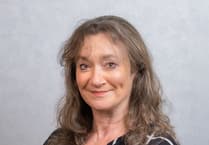An MLC is calling for a Tynwald select committee inquiry into the demographic challenge facing the island.
Paul Craine says the latest census highlights a considerable population imbalance.
He says we now have one one of the oldest age profiles in the world, with young adults emigrating and a dramatic fall-off in the number of births over the last decade.
The latest census shows the resident population increased by 755 from 83,314 to 84,069 since April 2016.
This is an increase of 0.9% over the past five years but the population is still more than 400 lower than it was 10 years ago when the 2011 census showed a figure of 84,497 .
While the total population has changed little over the past 10 years, the proportion aged over 65 years has increased to 22.1% and the median age has risen to 46.4 years.
The largest age groups are those between 50 and 64 years with the 15 to 40 age groups very much smaller.
Net inward migration rate over the last five years is approximately 1,600, according to the latest census.
But with 6,782 current residents stating that their residence started in 2016 or later, this suggests a significant level of outward migration has occurred over the same period.
Mr Craine has calculated that between 2011 and 2016, for every three 20- to 24-year-olds moving to the Isle of Man, 10 left. This pattern slowed only slightly between 2016 and 2021 – for every three immigrants in the 20-24 age group, there were eight emigrants.
‘The island is still losing young adults,’ said Mr Craine, who is author of the Manx Population Atlas.
‘The island has a considerable imbalance of population with little sign of improvement.’
The number of women of child-bearing age has fallen by more than 11% in the past 10 years and this is already having an impact on births.
Between 2010 and 2020 the number of births in the Isle of Man fell by more than 35%.
This will go on to reduce the number of people entering employment and lower the number of women of child-bearing age.
The number of under fours in the 2021 census is almost 25% lower than in 2011 and this is already beginning to hit primary school numbers.
In a motion to this week’s Tynwald sitting, Mr Craine will call for a select committee to be set up to investigate the underlying causes of these demographic challenges and imbalances and explore where existing policies may inadvertently contribute to them.
The committee will also be tasked with assessing the policies, programmes and measures that could be put in place by government and to report back to Tynwald with recommendations by the end of this year.




.jpeg?width=209&height=140&crop=209:145,smart&quality=75)
Comments
This article has no comments yet. Be the first to leave a comment.